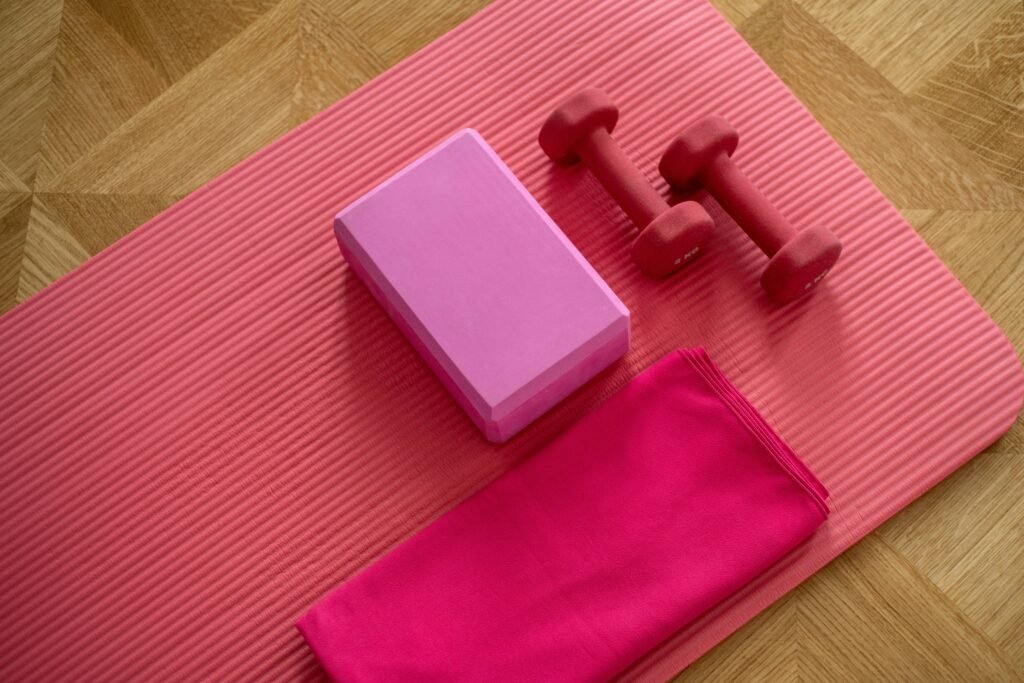Introduction
Have you ever wondered what physical fitness can do for you? Understanding the benefits of physical fitness can motivate you to make healthier choices in your daily life. Let’s explore the numerous advantages that come with maintaining a physically active lifestyle.

What Is Physical Fitness?
Before discussing its benefits, it’s important to understand what physical fitness actually means. Physical fitness refers to the ability of your body to perform daily activities with ease. It includes components such as cardiovascular endurance, muscular strength, flexibility, and body composition.
Physical fitness is not just about looking good, but also about feeling good and being able to live life to the fullest.
It’s not just about looks
Physical fitness is often associated with having a toned body or six-pack abs. While those are certainly aesthetic benefits, physical fitness goes beyond outward appearances. It is about being in optimal health, both physically and mentally.
Achieving balance
Achieving physical fitness involves finding a balance between cardiovascular endurance, strength training, flexibility exercises, and proper nutrition. By incorporating each of these components into your routine, you can work towards a well-rounded level of fitness.
Benefits of Physical Fitness
Now that we have a better understanding of what physical fitness entails, let’s dive into the benefits that come with prioritizing your health and well-being.
Improved overall health
Regular physical activity can lead to improved overall health. It can help lower your risk of chronic diseases such as heart disease, diabetes, and cancer. By maintaining a healthy weight and keeping your body in top shape, you can reduce the likelihood of developing these conditions.
Boosted immune system
Exercise is known to boost your immune system, making it easier for your body to fight off infections and illnesses. By staying active and engaging in regular physical activity, you can give your immune system the support it needs to keep you healthy.
Enhanced mental well-being
Physical fitness is not just beneficial for your body; it also has positive effects on your mental well-being. Exercise releases endorphins, also known as “feel-good” hormones, which can help reduce stress, anxiety, and depression. Regular physical activity has been linked to improved mood and cognitive function.
Increased energy levels
When you prioritize physical fitness, you can expect to experience increased energy levels throughout the day. Regular exercise helps improve circulation, deliver oxygen and nutrients to your cells more efficiently, and boost your stamina. This can lead to feeling more alert, focused, and ready to take on whatever the day may bring.
Physical Fitness and Weight Management
One of the most well-known benefits of physical fitness is its impact on weight management. Let’s explore how staying active can help you achieve and maintain a healthy weight.
Burn calories
Physical activity, whether it’s cardio, strength training, or a combination of both, helps you burn calories. The more intense the activity, the more calories your body will burn. By incorporating regular exercise into your routine, you can create a calorie deficit that leads to weight loss.
Build lean muscle mass
Strength training exercises help you build lean muscle mass, which can help increase your metabolism. Muscle tissue burns more calories at rest compared to fat tissue. By building muscle through strength training, you can boost your metabolism and burn more calories even when you’re not working out.
Maintain weight loss
Regular physical activity is crucial for maintaining weight loss over time. By combining exercise with healthy eating habits, you can prevent weight regain and ensure that the weight you lose stays off. Physical fitness becomes a lifestyle change that supports your long-term health and well-being.
Setting Fitness Goals
Establishing fitness goals can help you stay motivated and track your progress. Whether you’re aiming to lose weight, improve your cardiovascular endurance, or simply get stronger, setting specific goals can keep you focused and committed to your fitness journey.
Make it SMART
When setting fitness goals, remember to make them SMART: Specific, Measurable, Achievable, Relevant, and Time-bound. Instead of saying, “I want to get in shape,” try setting a goal like, “I want to be able to run a 5K in under 30 minutes by next month.” This gives you a clear target to work towards.
Track your progress
Keeping track of your fitness journey can help you stay accountable and motivated. Whether you use a fitness app, a journal, or simply a calendar, documenting your workouts, milestones, and achievements can show you how far you’ve come and keep you inspired to keep pushing forward.

Incorporating Exercise Into Your Routine
Finding time to exercise can be challenging, especially with a busy schedule. However, making physical activity a priority can greatly benefit your health and well-being. Here are some tips for incorporating exercise into your routine.
Schedule it in
Just like any other appointment or commitment, schedule your workouts in advance. Treat exercise as a non-negotiable part of your day that you can’t skip. By setting aside dedicated time for physical activity, you’re more likely to follow through and make it a habit.
Mix it up
Don’t be afraid to mix up your routine and try different types of exercise. Whether it’s running, yoga, weightlifting, or swimming, variety can keep things interesting and prevent boredom. It also allows you to target different muscle groups and challenge your body in new ways.
FAQs About Physical Fitness
How often should I exercise?
The American Heart Association recommends at least 150 minutes of moderate-intensity aerobic activity or 75 minutes of vigorous-intensity aerobic activity per week, along with strength training exercises at least twice a week. However, the key is to find a routine that works for you and that you can stick to consistently.
Can I improve my physical fitness at any age?
Yes! It’s never too late to start improving your physical fitness, regardless of your age or current fitness level. While it may take some time to see significant changes, regular physical activity can improve your health and well-being at any stage of life.
Do I need a gym membership to stay fit?
While a gym membership can provide access to a variety of equipment and classes, you don’t necessarily need one to stay fit. There are countless ways to exercise without a gym, from walking and biking outdoors to following workout videos at home. The key is to find activities that you enjoy and that fit your lifestyle.

Conclusion
Physical fitness offers a wide range of benefits that can enhance both your physical and mental well-being. By prioritizing regular exercise, you can improve your overall health, manage your weight, boost your energy levels, and enjoy a higher quality of life. Remember that physical fitness is a journey, not a destination, so take small steps every day to move closer to your goals. Start by making exercise a priority in your routine and watch as the benefits of physical fitness unfold in your life.